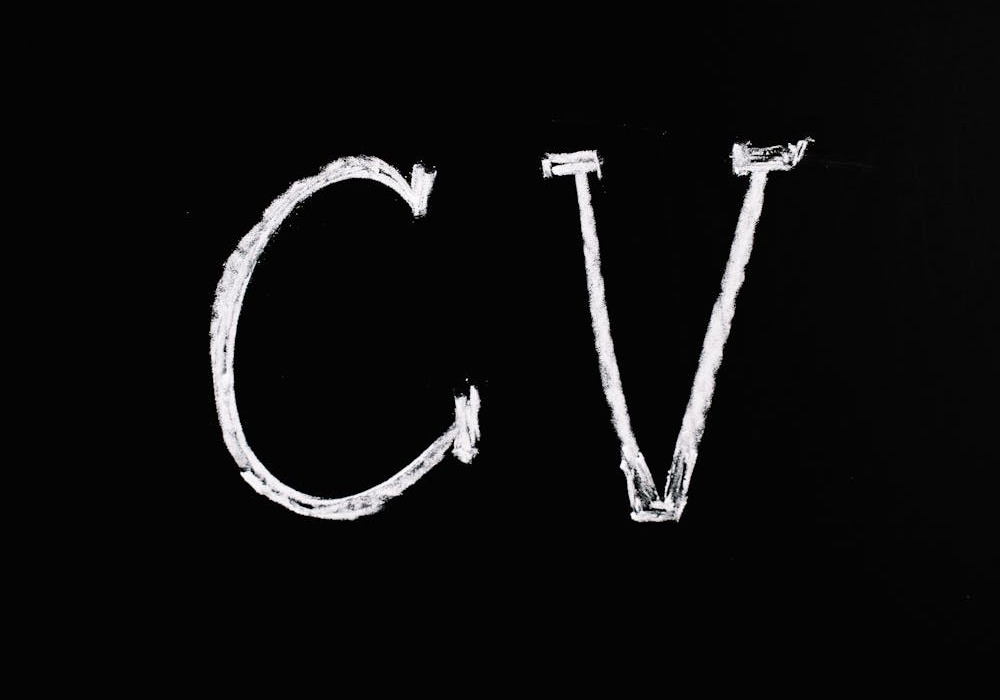Every employer asks for CVs these days. It’s their smart and polite way of firing some applicants even before they get to meet them. This is why you must avoid the following CV mistakes at all costs.
MISTAKE # 1: The Old School Format
Most of us learned how to write CVs from our parents, other older family members, and our lecturers. Most of these ‘consultants’ haven’t applied for any job in a very long time and are therefore clueless about the enormous transformation that has occurred in the job market since their last job hunt. They usually suggest a format like this:
- Personal and contact information
- Education and qualifications
- Work history and /or experience
- Relevant skills for the job in question
- Interests and hobbies
- Achievements
- References/ Referee
I’m not saying this format is entirely bad. It’s good, but only if you have a lot of educational qualifications and work experience. For a fresh graduate with very little or no work experience, this format most definitely sets you up for failure.
“Job Hunting is sales, and you are the product; your potential employer is the customer and your CV is your sales pitch. Now, your job as your own salesperson is to craft a sales pitch (CV) that will make the customer (EMPLOYER) fall in love with your product (YOU) and go ahead and buy it.” –Clement H. Holloway
You must say all the great stuff first and sparingly touch on the weak points or ignore them altogether. Your CV should look more like this:
- Personal & Contact Information
- Profile: This should briefly describe yourself in relation to the job you want to apply for. It could be something like this:
- “I am a results-driven Sales Professional with over a decade of experience in Business Development, B2B/B2G Sales and Negotiation.”
- Skills & Competences: List a few of the skills you have that will prove very useful in the position you are applying for. For example:
✓ Proven ability to manage the entire B2B sales cycle, from prospecting to deal closure.
✓ Skilled in identifying growth opportunities and developing strategies to expand market reach.
✓ Expertise in negotiating complex, high-value contracts that drive profitability and client satisfaction. - Achievements/Accomplishments: List some of the achievements you’ve had, that could guarantee your success in the position you are applying for. For example:
✓ Negotiated and secured a $6,500 initial advertising budget with UNICAF, expanding our agency’s reach to international markets (2023).
✓ Led negotiations to establish a partnership between Kizomba Ghana and Turkish Airlines, providing Kizomba members with exclusive benefits, including a 12% discount on flight tickets and free additional luggage (2023). - Work History/Experience: Training and attachments also count as work experience, so please NEVER LEAVE THIS PORTION BLANK, even if you’ve never had a real job.
- Education and qualifications: Most employers don’t care what primary school or J.H.S. you attended, so don’t add those; unless they are your only educational qualifications.
- References: Make sure whoever you put on this list has something good to say about you. Not everyone you have ever worked with or for has to be listed. Anywhere between 2 and 5 is fine.
A CV crafted in this format will make the employer fall in love with you before they see your work experience or educational qualification; which might not be your very strong selling points.
MISTAKE # 2: Attaching Pictures
Insane as this may sound, some applicants do it. I guess they forget that it’s a job they are applying for and not an audition for a beauty pageant. It might look cool and very tempting but don’t do it. You never know, you might have the face of the HR manager’s Ex-husband, and she definitely would not want you around.
MISTAKE # 3: Saying Your Age
All employers know that it is illegal to reject an applicant because of their age, but they do it anyway. So, outsmart them; don’t put it on your CV. Let them fall in love with you first, then only mention it when it comes up during the interview.
MISTAKE # 4: Stating Marital Status
Some employers like applicants who are single and ready to mingle, others like married ones, but you, my dear friend will never know which kind your next employer is. So, take my advice, never state it on your CV.
ALWAYS REMEMBER
“Job Hunting is sales and you are the product; your potential employer is the customer and your CV is your sales pitch.” Don’t screw it up.




Great. I have learned something new on CV writing.
Thank you, Thomas. I am glad I was able to help. God Bless🙏🏽